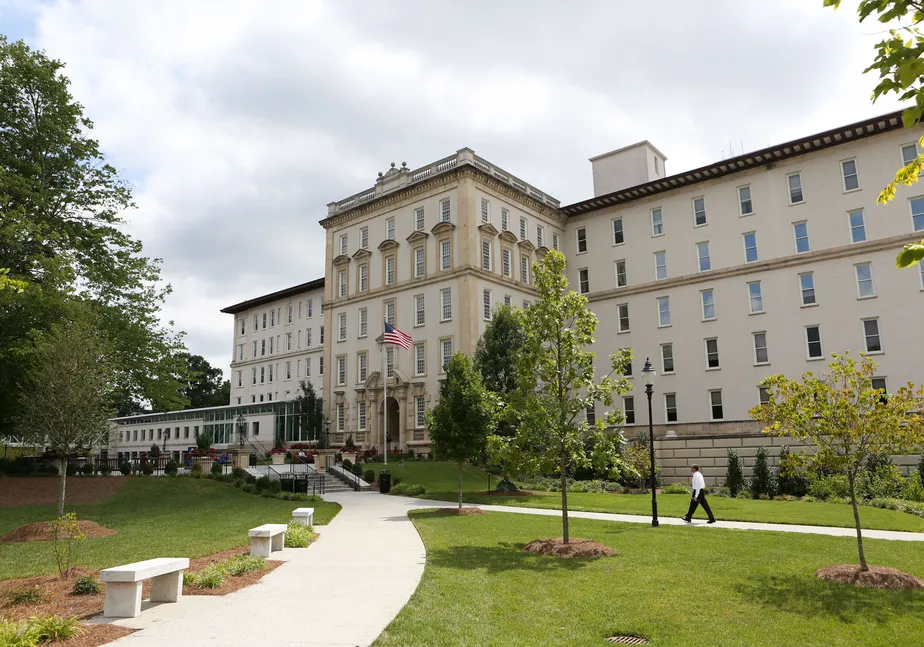Oguz Kaan Kısa · Aug. 11, 2021

Emory Institution is a private exploration college in Atlanta, Georgia, that was established in 1836 by the Methodist Episcopal Church and named after the late Methodist Bishop John Emory. Emory University is a private college in Atlanta, Georgia's noteworthy Druid Hills region, known for its extraordinary aesthetic sciences schools, graduate and expert schools, and one of the world's head medical services frameworks. With a 8:1 understudy to-personnel proportion, the school is a top notch foundation.
The Goizueta School of Business and the Nell Hodgson Woodruff School of Nursing, as well as The Carter Center for Global Peace and Health, are all located on the campus. There are almost 550 different clubs and organizations on campus, as well as various secret societies including Emory, DVS, and the Paladin Society. Emory also offers an exchange program with the University of St. Andrews in Scotland.
Emory University accepts applications online via the Joint Application or Coalition Application. Both applications provide students with the same customizable possibilities. When you come to study here, you may take part in the center's events and plan your future to the best of your ability with free assistance from advisors who are specialists in their disciplines. You'll need the following items to finish your admissions file:
- Joint Practice or Coalition Practice
- $75 application fee or application fee waiver
- Official high school transcripts
- Official college transcripts, if available
- Official scores from the SAT and/or ACT; If English is your second language, it is highly recommended that you submit results from TOEFL or IELTS.
- Test Codes: SAT / TOEFL: 5187; ACT: 0810
- High school report / counselor advice
- Two teacher letters of recommendation
- Mid-year report (25 January for Early Decision II applicants, 15 February for Regular Decision application)
From student life until graduation, the Emory University Career Center provides a wide range of services relating to career planning. Some of these services are listed below;
- Career Discovery
- Career Discovery Days
- Resume, Cover Letters, etc.
- Networking
- Jobs and Internships
- Interviewing
- Graduate Education Consultancy
On Emory's main Atlanta campus, seven graduate and professional schools provide specialized courses and distinctive research possibilities. Academic programs concentrate on the arts and sciences, business, law, religion, and health care. Their dedication to liberal learning, collaborative multidisciplinary programs, and the quest of intellectual difference binds these fields together. Emory University's graduates exemplify the school's mission by preparing future leaders of society in their fields of specialization. This is a work mission: to produce, conserve, educate, and use knowledge in the service of mankind.
More than 40 graduate programs in the humanities, social sciences, biological and natural sciences, public health, nursing, and business are available to students. Joint degree programs are available in all seven of the university's graduate schools.
- Philip A. Amerson (PhD 1976) – President of Garrett-Evangelical Theological Seminary
- Ivan Loveridge Bennett (BA 1943, MD 1946) – physician, dean of the NYU School of Medicine, president of New York University 1980–1981
- Robert G. Bottoms (BD 1969) – former President of DePauw University
- Marion L. Brittain (BA 1886) – academic administrator, president of the Georgia Institute of Technology 1922–1944
- Charles Paul Conn (MA, PhD) – President of Lee University in Cleveland, Tennessee
- James H. Daughdrill, Jr. (BA 1956) – 18th president of Rhodes College
- Arthur Hollis Edens (BA 1928, MA 1938) – 3rd President of Duke University
- Andrew D. Holt (BA 1927) – 16th President of the University of Tennessee
- Isaac Stiles Hopkins (Bachelor's degree 1859) – first President of the Georgia Institute of Technology

 Back
BackLet us find your dream university.
